Can a Pomeranian Eat Pasta?
Date Published: February 16, 2024 | Last Modified: February 18, 2024
Before we dive in, let's set the record straight - yes, Pomeranians can enjoy pasta! In this article, we'll explore the health benefits of adding pasta to your furry friend's diet, as well as the potential pros and cons to consider. We'll address any safety concerns you may have, including whether pasta is toxic to Pomeranians. Ultimately, we'll determine if pasta can be a nutritious addition to your pet's meals. So, let's dig in and uncover the truth about Pomeranians and pasta!
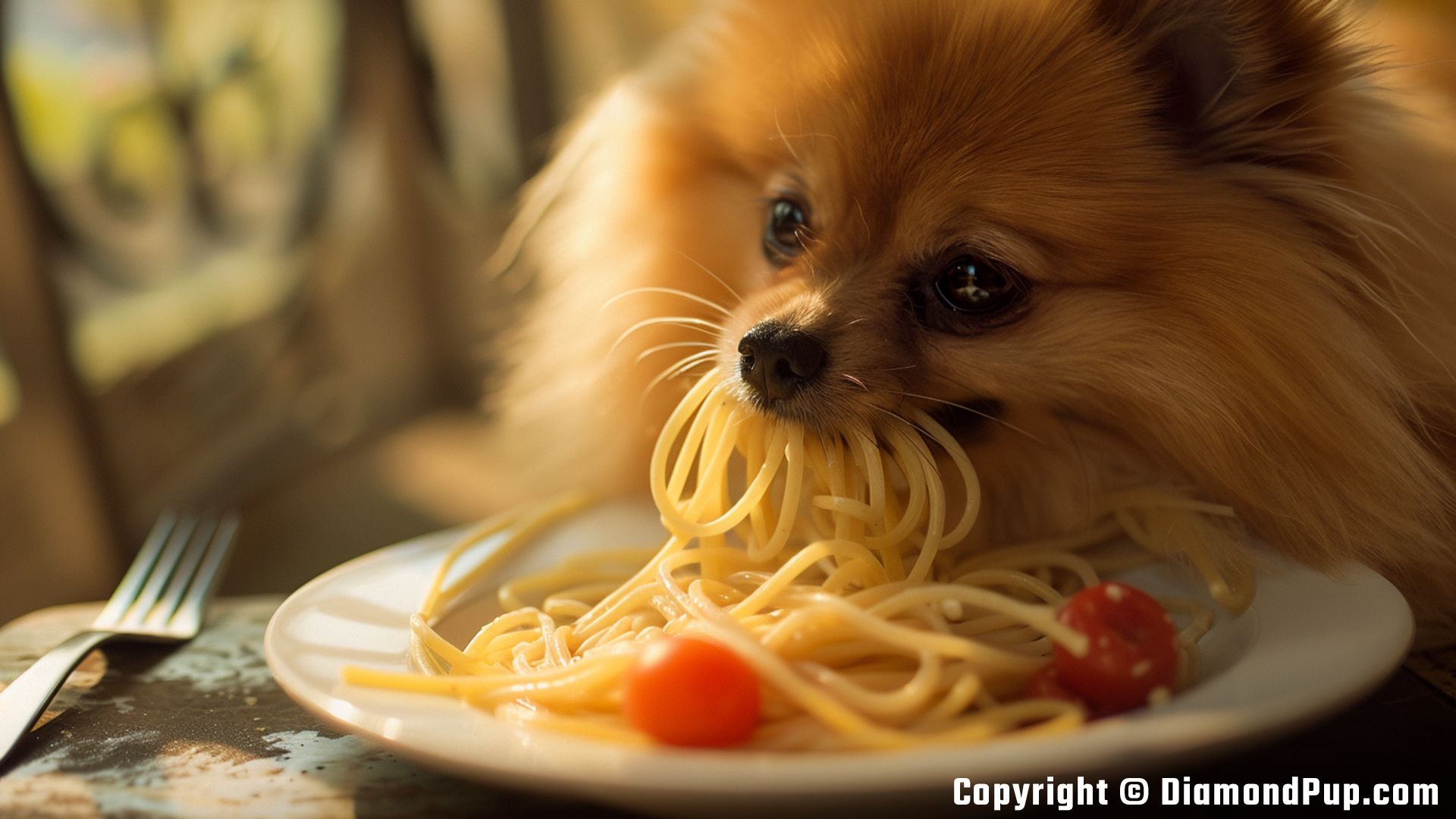
Are Pastas Good for Pomeranians?
When it comes to feeding pasta to your Pomeranian, it's important to choose the right type of pasta. Opt for whole grain or whole wheat pasta instead of refined pasta. Whole grain pasta contains more fiber, which can aid in digestion and help regulate blood sugar levels. Additionally, whole grain pasta provides essential nutrients like vitamins B and E, as well as minerals like iron and magnesium that are beneficial for your Pomeranian's overall health.
However, it's crucial to serve pasta to your Pomeranian in moderation. Pasta should only make up a small portion of their diet, as it is not a complete source of nutrition for dogs. Be sure to balance their pasta intake with high-quality dog food specifically formulated for small breeds like Pomeranians to ensure they are meeting all their nutritional requirements.
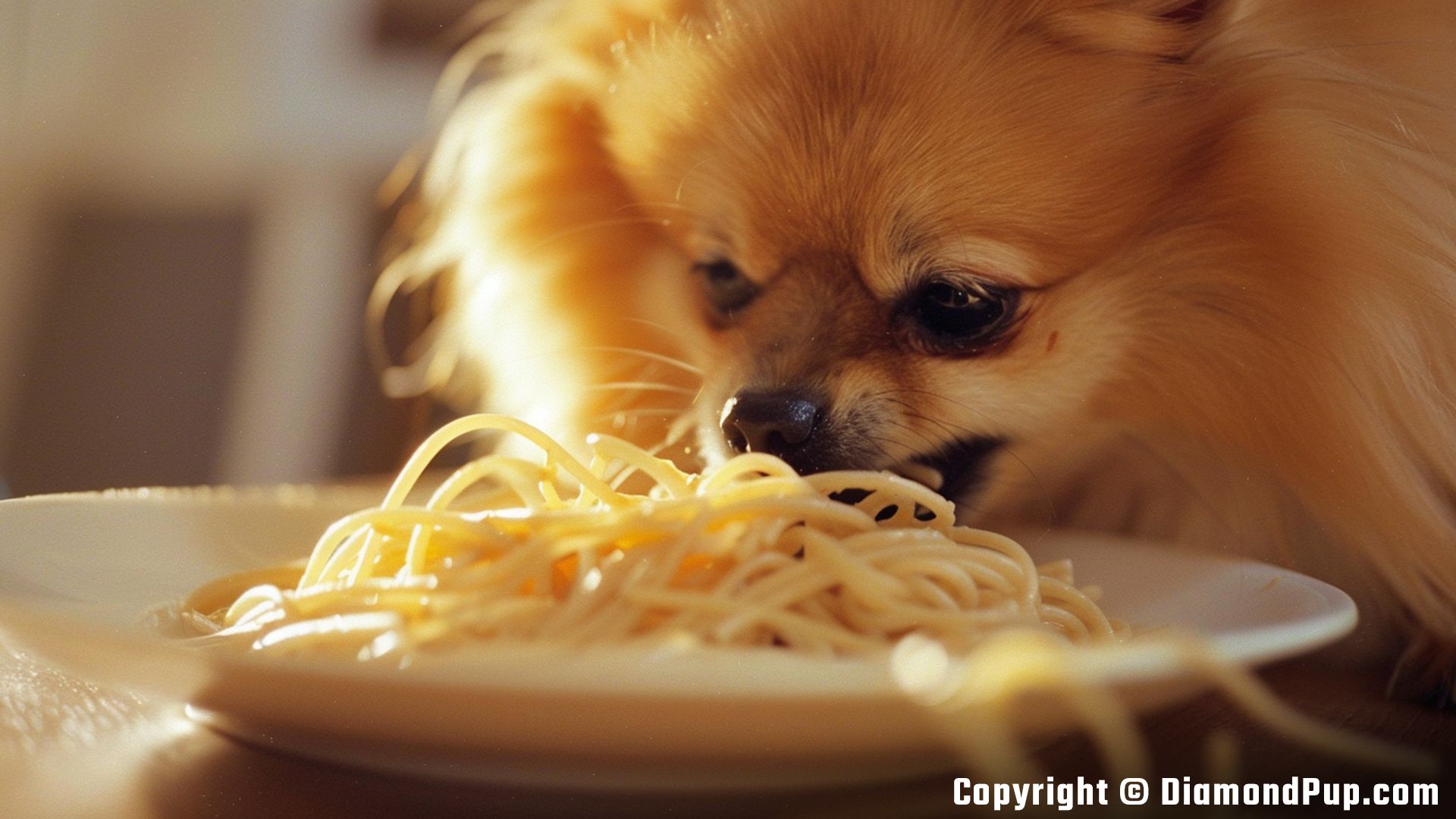
Understanding the Benefits of Pastas for Pomeranians
When it comes to Pomeranians, pasta can actually provide some health benefits when included in their diet. Pomeranians are a small breed that can benefit from the energy boost that carbohydrates in pasta can provide. Carbohydrates are an important source of energy for dogs, especially those with high energy levels like Pomeranians. Additionally, the fiber content in whole wheat pasta can support their digestive health by promoting regular bowel movements and a healthy gut microbiome.
However, it's important to feed pasta to Pomeranians in moderation and ensure it is plain and cooked without any seasonings or toppings that could be harmful to them. Always consult with your veterinarian before introducing any new food to your Pomeranian's diet to ensure it aligns with their specific nutritional needs and overall health.
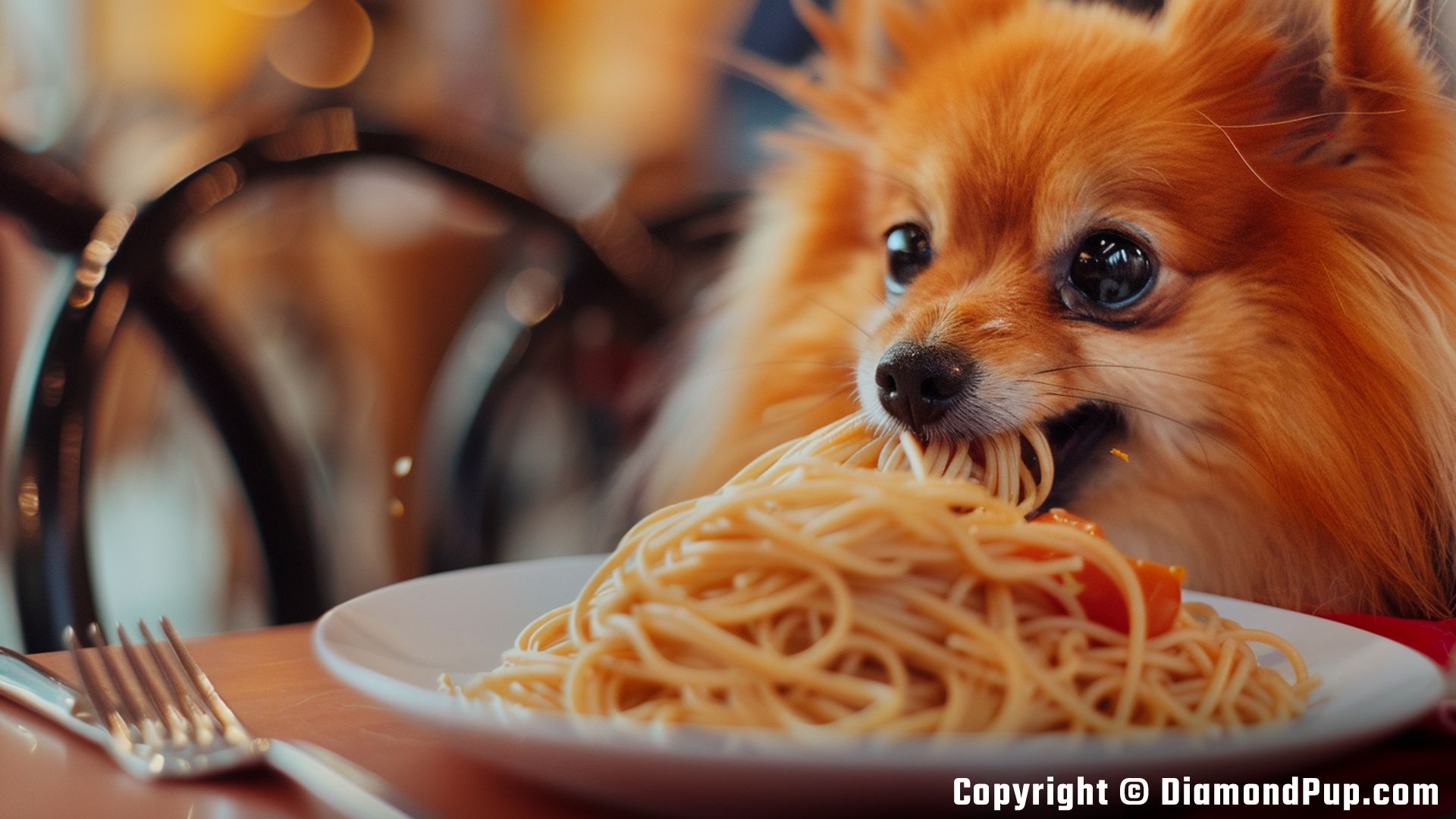
Nutritional benefits of Pastas for Pomeranians
Pastas can be a good source of carbohydrates for Pomeranians, providing them with energy to stay active throughout the day. Additionally, certain types of pasta, such as whole wheat or vegetable-based ones, can offer dietary fiber to support healthy digestion in your Pomeranian. Fiber is essential for maintaining gut health and can help prevent constipation, which tends to be a common issue in small breeds like Pomeranians.
When feeding pasta to your Pomeranian, it's important to ensure it is cooked plain without any added sauces or seasonings that may be harmful to your pet. Portion control is also key, as pasta should only be given in moderation to prevent weight gain and maintain a balanced diet for your furry friend.
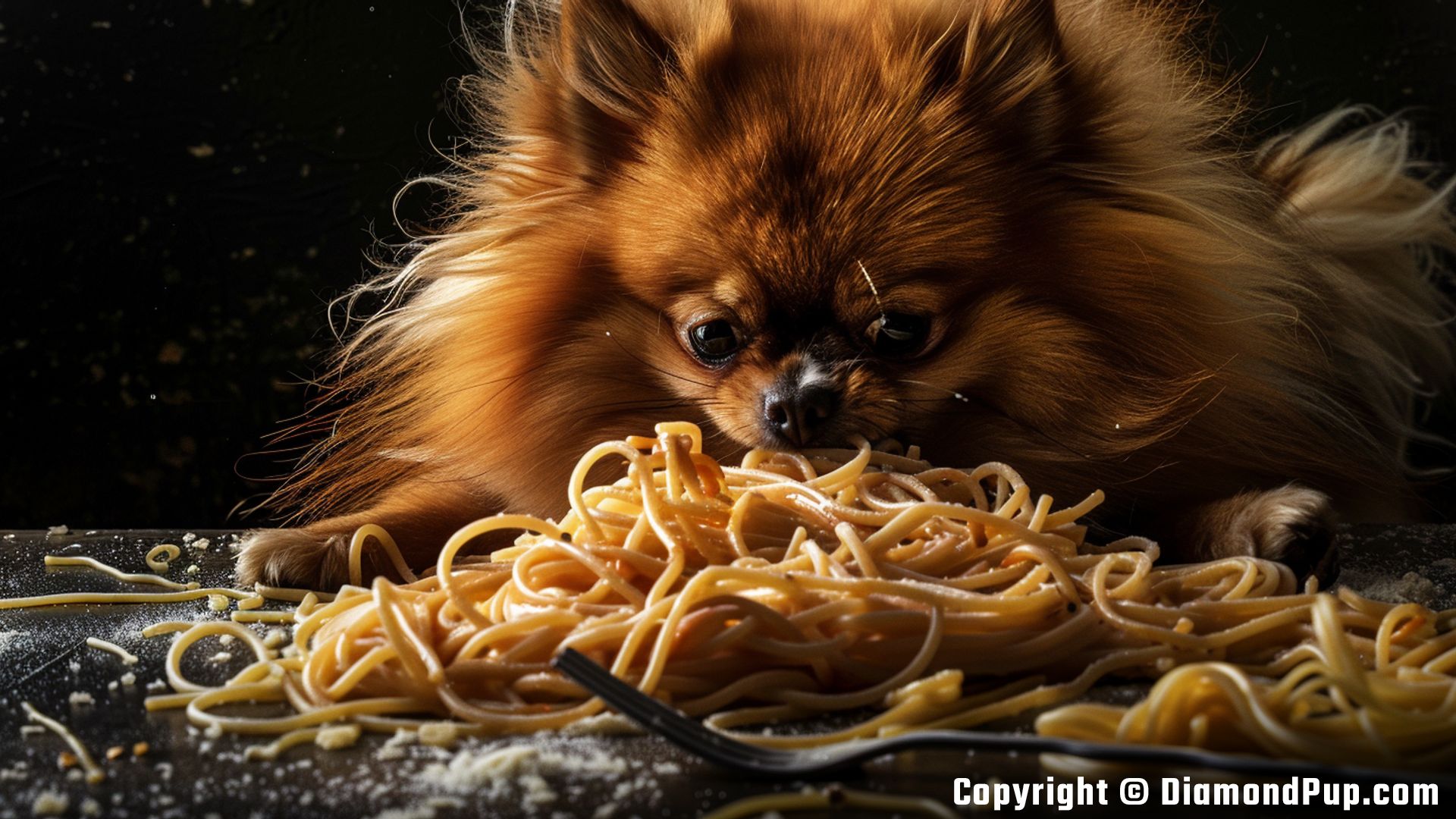
Safely Introducing Pastas to Your Pomeranian's Diet
When introducing pasta to your Pomeranian's diet, it's important to start slowly and monitor for any signs of digestive upset. Begin by offering a small amount of cooked plain pasta, such as whole grain or gluten-free varieties, to see how your dog reacts. Avoid adding any seasonings or sauces, as these can upset your Pomeranian's stomach. Additionally, make sure the pasta is cooked al dente to make it easier for your pet to digest.
Monitor your Pomeranian for any signs of allergies or sensitivities to the pasta, such as itching, vomiting, or diarrhea. If your dog tolerates the pasta well, you can gradually increase the portion size while ensuring it remains a small part of their overall balanced diet. Remember that pasta should never replace their regular nutrient-dense dog food, but can be given as an occasional treat.
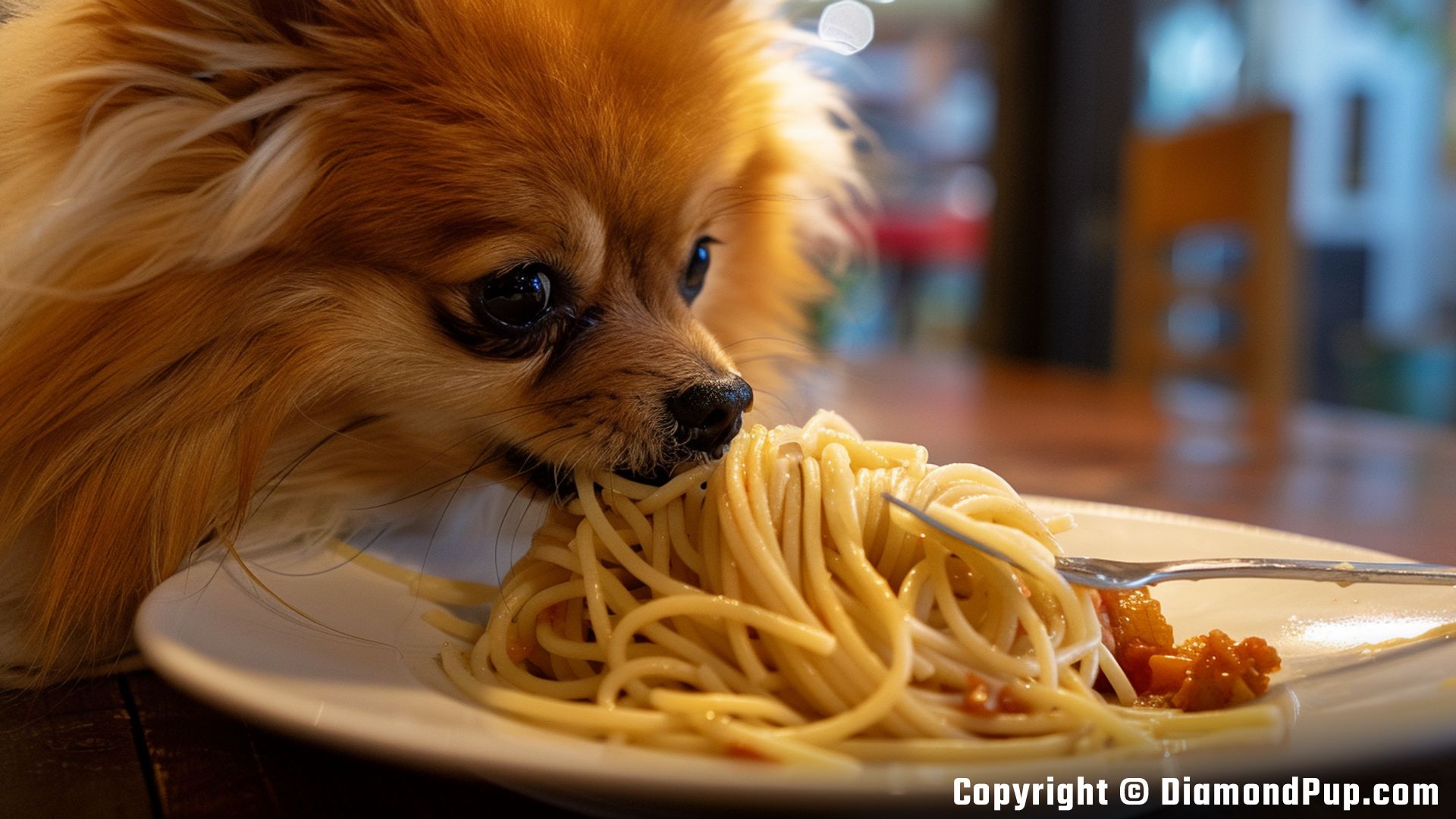
How much pasta can a dog eat safely?
When it comes to feeding your Pomeranian pasta, it's important to practice moderation. Pasta should only make up a small portion of your dog's overall diet. As a general guideline, you can offer about 1-2 tablespoons of cooked pasta per meal for a small breed like a Pomeranian. This will help prevent any potential digestive issues that may arise from consuming too much pasta at once.
Additionally, it's crucial to ensure that the pasta is plain and free from any seasonings, sauces, or ingredients that could be harmful to your pet. By following these guidelines and incorporating pasta in small amounts, you can safely treat your Pomeranian to this occasional tasty delight.
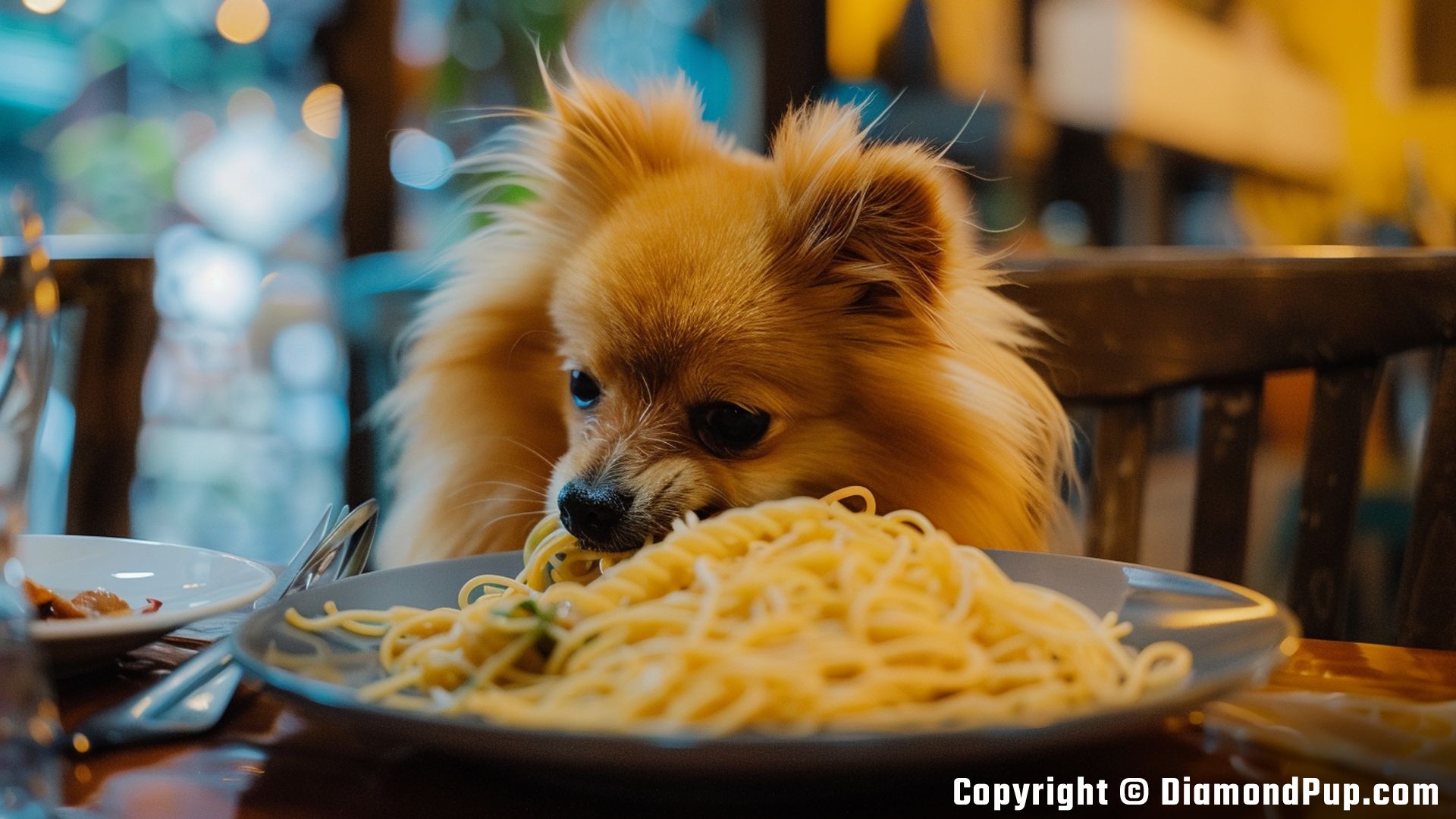
Tips to Remember When Feeding Your Dog Pastas
When feeding your Pomeranian pasta, there are a few important tips to keep in mind. Firstly, opt for whole wheat or grain-based pasta over white pasta, as it contains more fiber and nutrients that are beneficial for your dog's digestive health. Secondly, ensure the pasta is plain and cooked without any seasonings, sauces, or additional ingredients that may be harmful to your pet. Lastly, always feed pasta to your Pomeranian in moderation, as too much can lead to weight gain and digestive issues. By following these tips, you can safely incorporate is pasta good for shih tzus pasta into your Pomeranian's diet and provide them with a tasty treat.
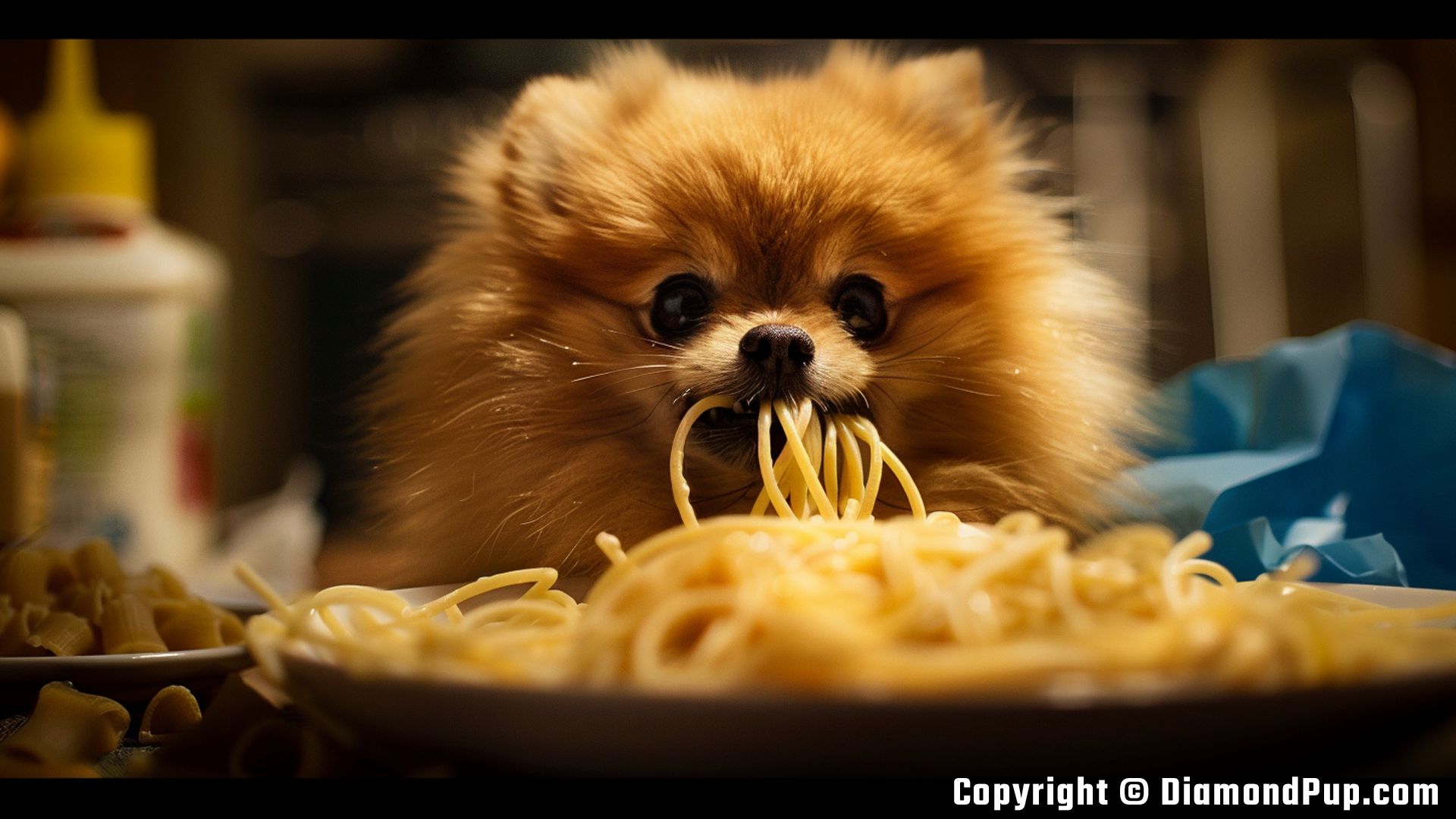
Feeding Your Dog Pastas
When choosing a pasta for your Pomeranian, opt for whole wheat or grain-free varieties to ensure a higher nutritional value. Whole wheat pasta contains more fiber, which can aid in digestion and help your pet feel full for longer periods. Grain-free options can be beneficial for Pomeranians with sensitivities to grains or gluten. Avoid pasta dishes with high-fat sauces, excessive salt, or seasonings as they may upset your dog's stomach. It's important to cook the pasta al dente and cut it into small, bite-sized pieces to prevent choking hazards for your small breed dog.
Consider adding cooked vegetables, lean proteins like chicken or turkey, and a small amount of plain tomato sauce to make a balanced pasta meal for your Pomeranian. Monitor your dog's reactions after introducing pasta to their diet, and consult with your veterinarian if you notice any digestive issues or allergic reactions. Remember, everything should be in moderation to maintain a healthy and balanced diet for your beloved Pomeranian.
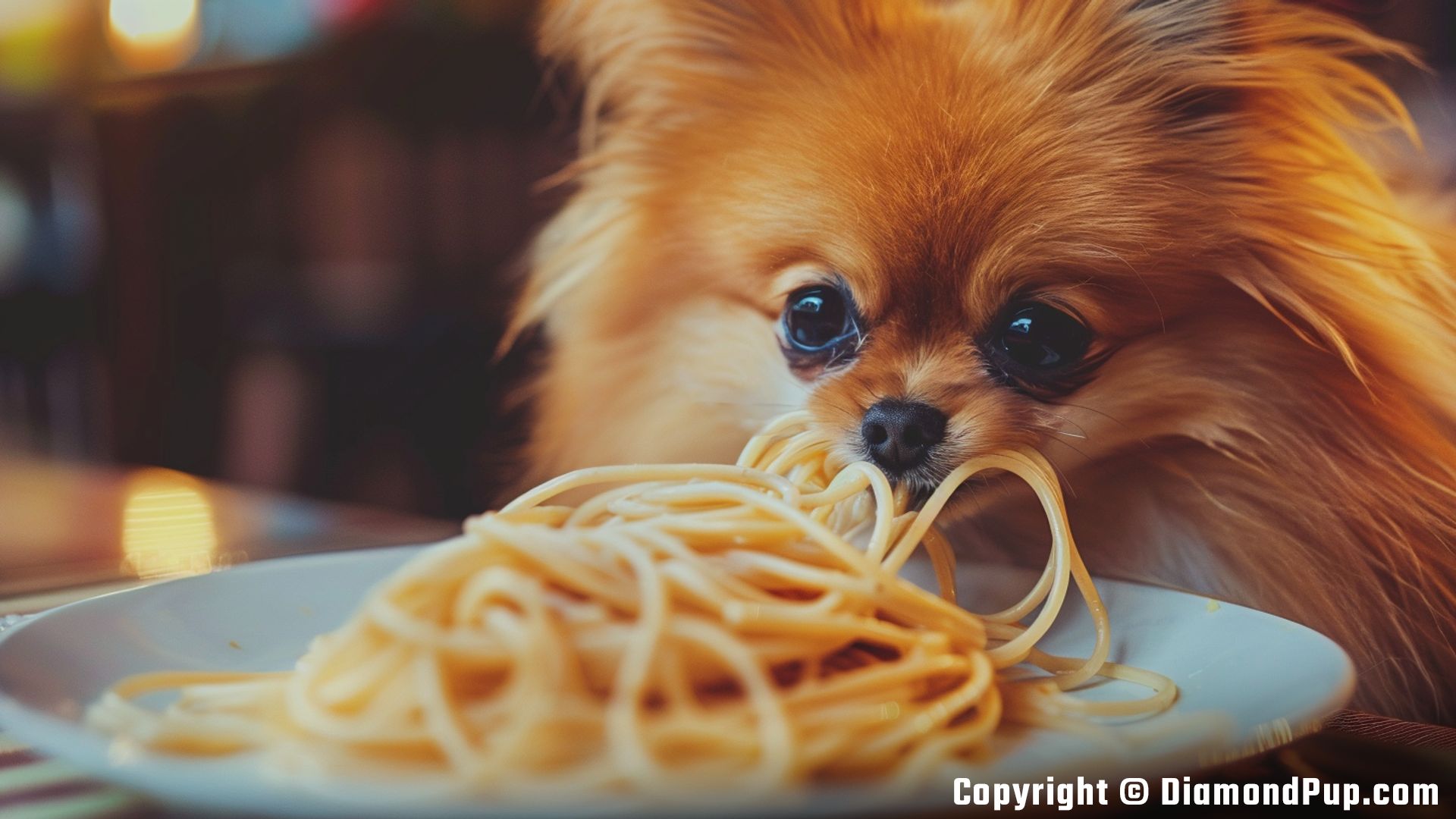
How to properly feed your dog Pastas
When feeding pasta to your Pomeranian, it is important to choose the right type of pasta. Opt for whole grain or whole wheat pasta over white pasta, as they contain more fiber and nutrients essential for your dog's overall health. Additionally, it's best to serve the pasta plain, without any sauces or seasonings that may be too rich or contain ingredients that could be harmful to your pet. Remember to cook the pasta thoroughly to make it easier for your Pomeranian to digest and avoid any potential digestive issues.
It's recommended to serve pasta to your Pomeranian in moderation, as it should not make up the majority of their diet. Pasta can be a tasty and occasional addition to your dog's meals, providing some extra carbohydrates and energy. However, always ensure that the pasta complements a well-balanced diet that meets all of your Pomeranian's nutritional needs to keep them healthy and happy.
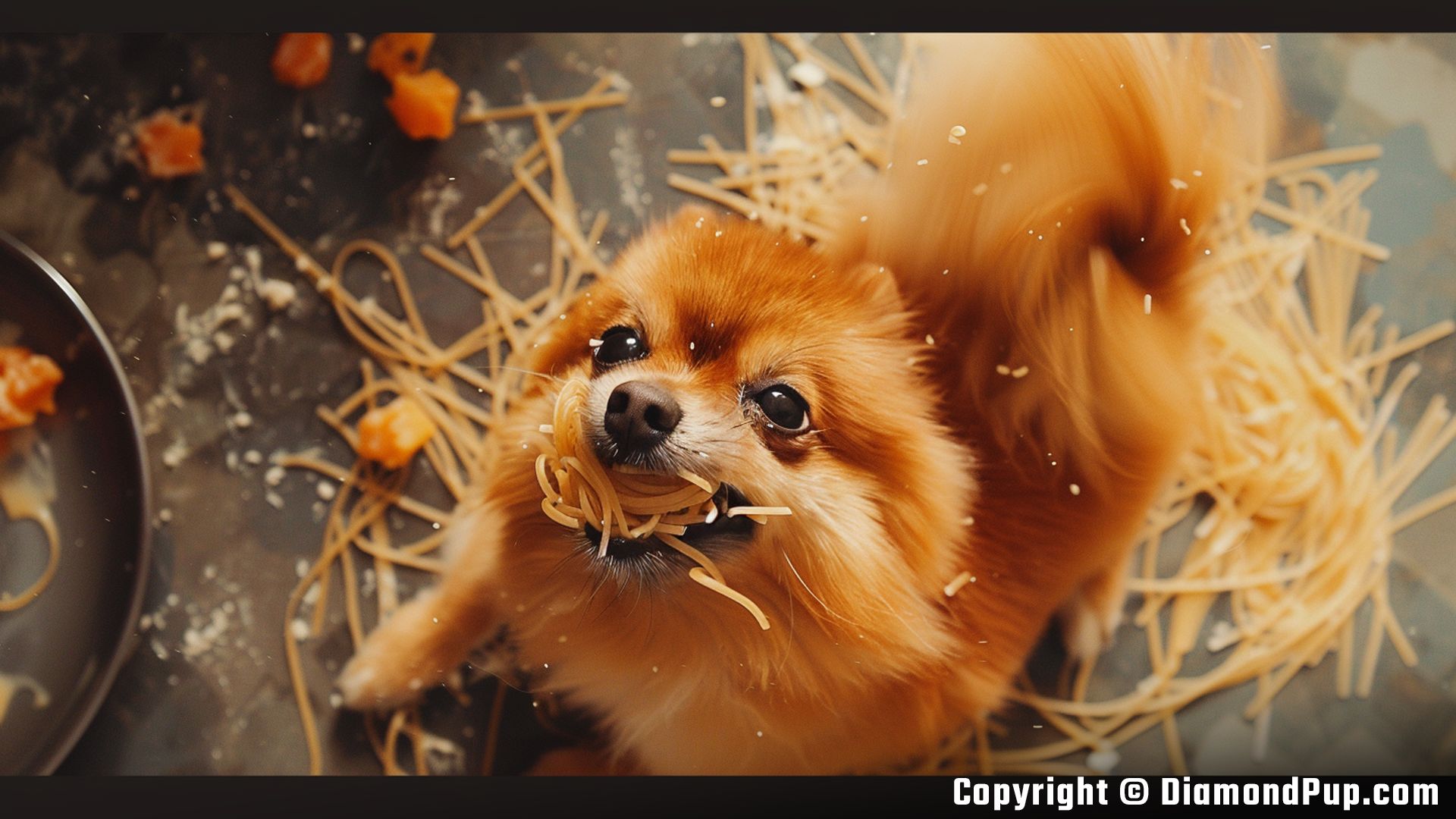
Do Pomeranians Like Pastas?
Pomeranians can indeed enjoy the occasional pasta treat! Due to their small size, it's essential to feed them pasta in moderation to prevent weight gain and other health issues. When preparing pasta for your Pomeranian, opt for plain cooked pasta without any seasonings or sauces. Additionally, it's crucial to cut the pasta into small bite-sized pieces to avoid any choking hazards, especially for toy breeds like Pomeranians.
Whole grain pasta can be a healthier option for your Pomeranian as it provides more fiber compared to refined pasta. Fiber is essential for maintaining a healthy digestive system and can help prevent constipation in your furry friend. Remember to always monitor your dog's reaction to pasta and consult with your veterinarian if you have any concerns about incorporating it into their diet.
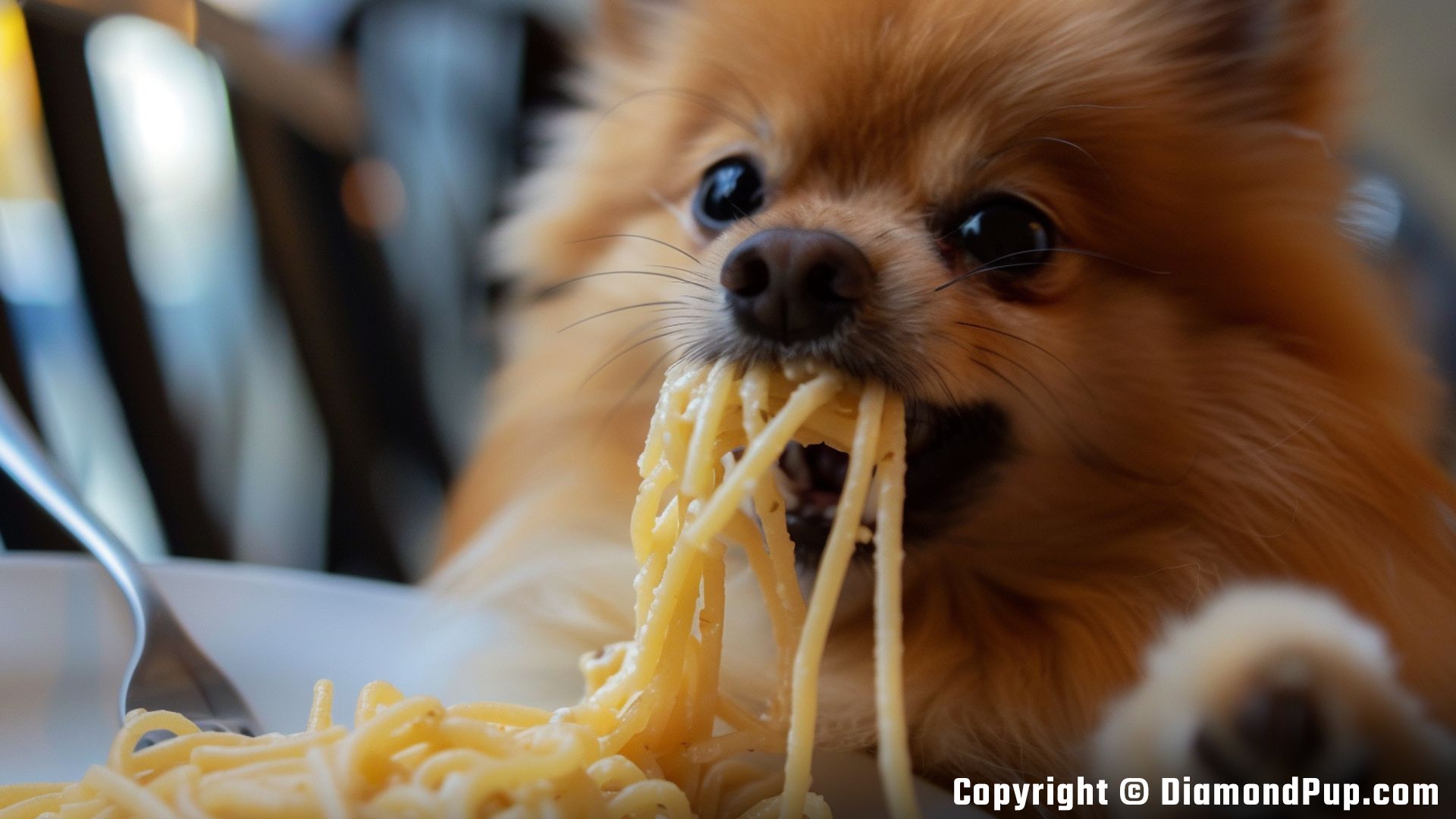
Special Consideration for Pomeranians
When it comes to feeding pasta to your beloved Pomeranian, there are a few special considerations to keep in mind. Due to their small size, Pomeranians have high metabolisms and can be prone to weight gain. Therefore, it's important to offer pasta in moderation to prevent excess calories and potential weight issues. Additionally, Pomeranians are known for having sensitive stomachs, so introducing pasta gradually and monitoring for any digestive upsets is recommended. Feeding potato to pomeranians: yes or no? Opt for whole wheat pasta instead of white pasta as it provides more fiber and nutrients, which can benefit your Pomeranian's digestive health.
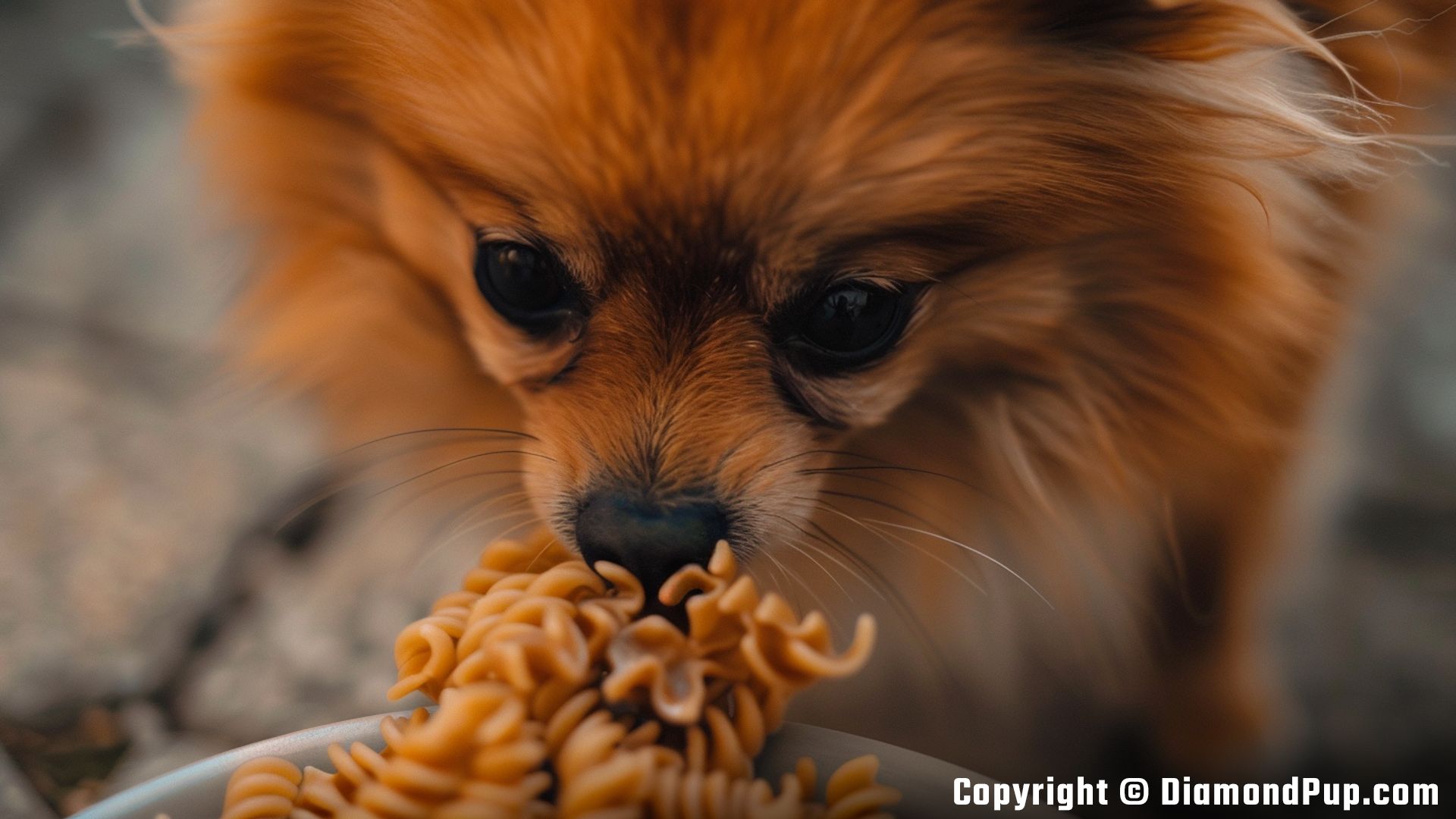
Can Puppies Have Pastas?
When it comes to feeding pasta to Pomeranian puppies, it's essential to proceed with caution. Puppies have different nutritional needs compared to adult dogs, requiring a balanced diet rich in essential nutrients for growth and development. While pasta can be included occasionally as a treat, it should not make up a significant portion of their diet. It's important to prioritize high-quality puppy food designed specifically for small breeds like Pomeranians to ensure they receive the necessary vitamins, minerals, and protein for optimal health.
Additionally, when introducing pasta to Pomeranian puppies, it's crucial to avoid adding any sauces or seasonings that may be harmful to their delicate digestive systems. Plain, cooked pasta in small, easy-to-chew pieces can be offered sparingly to puppies as a safe and enjoyable snack. As always, it's best to consult with your veterinarian to determine the most suitable dietary plan for your Pomeranian puppy's individual needs.
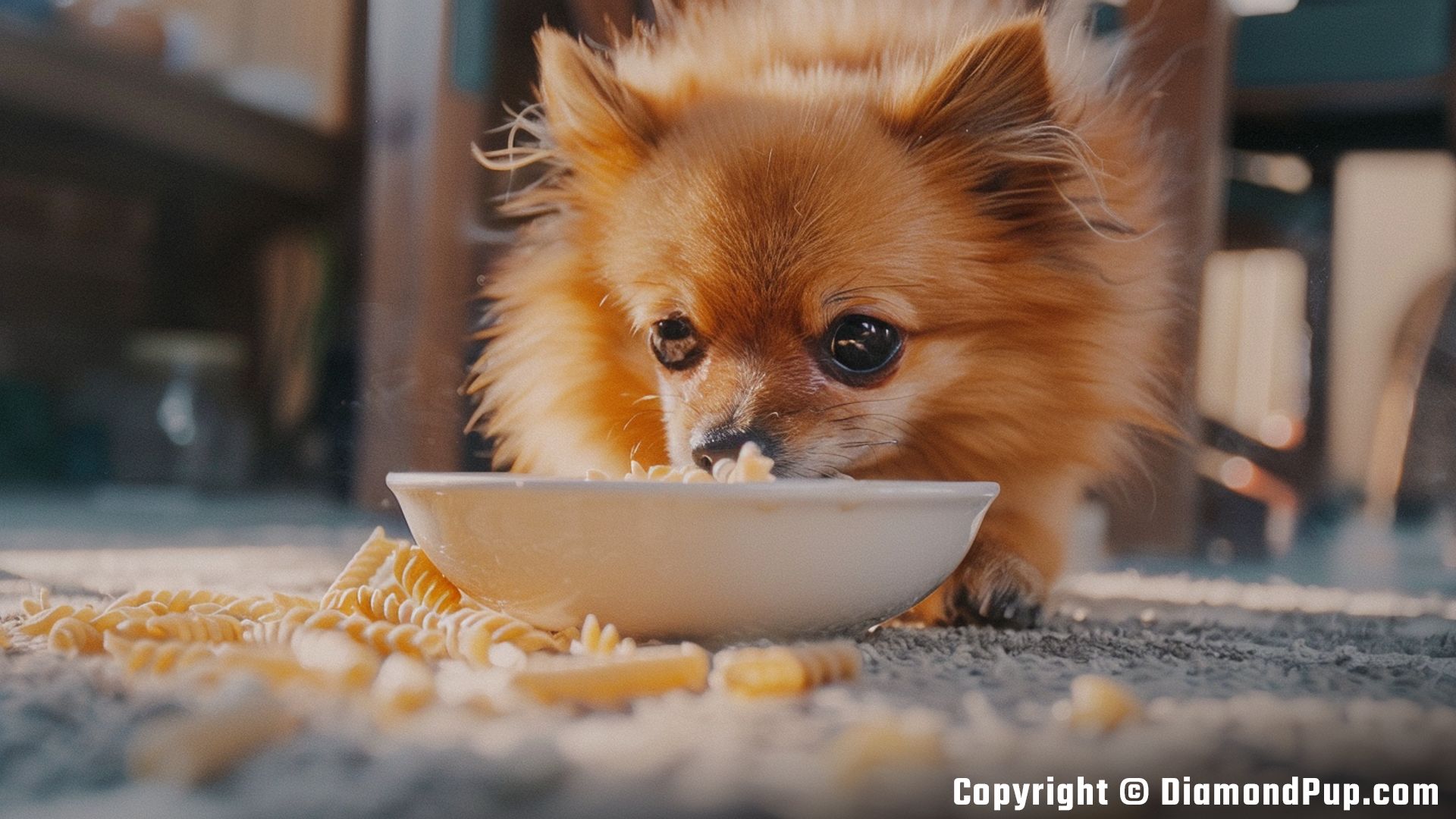
Are there any Pomeranians that shouldn't eat Pastas?
While Pomeranians can generally enjoy pasta as part of their diet, there are some individuals within the breed who may need to avoid it. Pomeranians that are overweight or have a tendency to gain weight easily should consume pasta in moderation, as it is a carbohydrate-rich food that can contribute to excess calories. Additionally, Pomeranians with certain health conditions such as diabetes or gastrointestinal sensitivities may not tolerate pasta well and should avoid it altogether.
It's always best to consult with your veterinarian before making any significant changes to your Pomeranian's diet, including the addition of pasta. Your vet can help determine if pasta is suitable for your specific Pomeranian based on their individual health needs and dietary requirements.
Recipes for Feeding Your Dog Pastas
When it comes to feeding your Pomeranian pasta, it's important to choose the right type of pasta and prepare it in a way that is safe and nutritious for your furry friend. Opt for whole wheat or whole grain pasta instead of white pasta to ensure a higher fiber content, which can aid in digestion. Avoid pasta dishes with sauces that are high in fat, sodium, or spices, as these can upset your Pomeranian's stomach. Keep the portions small and always cook the pasta until it's soft enough for your Pomeranian to chew easily. Is pasta good for shih tzus Additionally, consider mixing the pasta with lean proteins like boiled chicken or turkey to create a balanced meal for your Pomeranian.
Alternatives to Pastas for Pomeranians
While pasta can be a tasty treat for your Pomeranian, it's essential to consider healthier alternatives for their overall well-being. Opt for whole grains such as brown rice or quinoa, which provide more nutrients and fiber than traditional pasta. Additionally, incorporating lean proteins like chicken or fish into your Pomeranian's diet can help support their muscle health and energy levels. Remember to always consult with your veterinarian before making any drastic changes to your pet's diet to ensure they are receiving the best nutrition possible.
Common Questions About Pomeranians and Pastas
One common question that arises when considering feeding pasta to a Pomeranian is whether it's safe for them to consume. While pasta itself is not toxic to dogs, it's essential to avoid adding any sauces or seasonings that may be harmful to your furry friend. Opt for plain cooked pasta without any added ingredients to ensure it's safe for your Pomeranian.
Another important question is about the portion size of pasta for Pomeranians. Due to their small size, it's crucial to feed pasta to Pomeranians in moderation. Including pasta as an occasional treat rather than a regular part of their diet is the best way to ensure it doesn't lead to any digestive issues or unwanted weight gain in your Pomeranian.
Subscribe Now
Stay updated with the latest news and articles! We'll keep you updated on the latest tips for your pet Pomeranian
